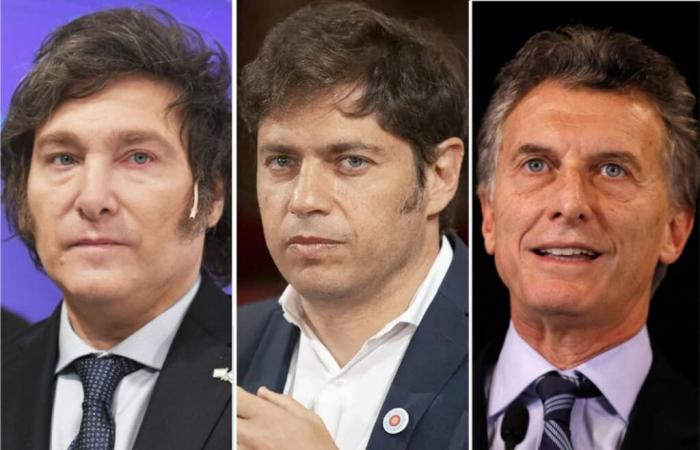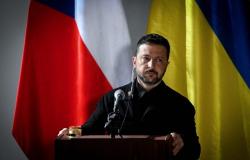The GPS broke. At least that of the corporate world. Entrepreneurs, executives, lobbists, bankers and even multinational managers closely follow the Argentine case with the complexity that the economy generates. They coincide with the great macro guidelines but begin to worry about the political future with a growing paradox. In the economy there is a total disinterest in the debates to the elections, for the movements between lists and what politicians say, but a real revolt due to the lack of agreement between spaces with related ideas. For sample it serves a button. Of 12 CEOs of companies that participated in a business meeting the day after the debate in the city, none had even seen a minute of the clash among the 17 candidates. But everyone was worried about growing fight and fragmentation, Also the levels of intolerance with which he thinks differently.
“I understand that freedom progresses wants to show their power, that they are self -absorbed in their economic achievements, also that the PRO does not want to yield and that the radicals and the civic coalition have been divided, but If the result of this is that Kirchnerism wins in the city of Buenos Aires and in the province, I do not know how I explain to my parent company that economic policy arrives to stay. And be careful with the confidence of the Argentines. In that case, everyone loses, ”worried one of the regional ceos that has just announced a great disbursement in the country. Among the violets they are convinced that this will not happen and that they will then have greater strength to absorb the PRO, among the yellows remember that in the world of power nothing is forever. The words of Mauricio Macri still resonate in 2017 when he swept the election of mid -term with 40% nationwide and 41% in the province of Buenos Aires defeating Cristina Fernández de Kirchner. In that distant country, the victory of together for the change in the city of Buenos Aires was also devastated with a Lilita Carrió as a candidate and 50% of the votes to almost 30 points of Daniel Filmus, in second position, representing a space that seemed finished. In that October Macri celebrated his results and talked about a long -term plan. “This generation will change the story forever. We are beginning to tour the twenty best years in Argentina. I became a fan of each of you -in reference to the Argentines.” After a while, Kirchnerism that seemed divided forever reborn from the ashes, 14 tons of stones stalked the Congress to tear down the pension reform and two years later Alberto Fernández, Cristina Fernández de Kirchner, Axel Kicillof and Sergio Massa lived the Peronist march on their return to Balcarce 50.
Facundo Gómez Minujín, CEO of JP Morgan Argentina, this week made an exhibition on the “global political and economic scenario”, in which he assured that The result in legislative elections is “a fundamental event” since “it could reinforce the current economic scheme.” “Investors are looking at what happens in October. Other more cautious will think if the president will have the possibility of making structural reforms,” he continued. The rational of his analysis revolves around something that is still fresh in International memory: “Argentina comes from a succession of crisis and no president achieves re -election. That generates skepticism,” he said. Kristalina Georgieva herself, head of the International Monetary Fund (IMF), had declared in the same tune when she invited to continue with the plan and found reactions of two of her old acquaintances: Axel Kicillof and Cristina Kirchner.
The Figure of the governor It is another of the points that investors are closely. Lucas Romero, head of Synopsis, published this week a survey in which the John Maynard Keynes fan begins to mirror – he was now able to edit a new book called Back to Keynes in which he re -lies his doctoral thesis written 20 years ago – with the president who defines himself as “demolition of Keynesians”. The silhouette of both shows two countries with positions as antagonistic as worrying From the international prism. They have almost the same levels of rejection at the national level (55.1% the libertarian leader against 51.9% of leader K) and also acceptance (40.9% against 39.2%), according to the Synopsis survey, the first one that shows that photograph. Although among the neutral the roof is higher for the defender of the leading state (8.1%) versus the leader of the idea of the criminal state (3.9%).
“If the economy grows, inflation slows down and aggression falls is very possible that the image of the government grows and that of Kicillof falls. But if that does not happen, it is increasingly clear that it will be its natural antagonist for within two years,” said a consultant worried about preserving his off the record. “I don’t want them to get angry with me again but If this story does not act in time, we saw it ”, He murmured.
In The world of microeconomy There is also a silent revolution. The Minister of Economy, Luis Caputo, He referred to a “fundamental change for which it is important that we change our heads.” And he added: “The decline in the Argentine cost is no longer due to devaluations. It will come for four factors: Three that have to do with us and one from the private sector. We must continue to lower taxes, deregulate and open the competition. From the private ones you have to invest again, ”he said in the opening of the Expoefi, the Exhibition of Economy and Finance where the President of the Nation said present.
There, several of the main economists in Argentina speaking to which from the government we are usually questioned about its analysis and forecasts. “In 2023, when he talked to a client, no one cared about demand, or costs, what mattered was the relationship with the regulator, if there were dollars and if they let you fix the costs,” he summarized Marina Dal Poggeto, Ecogo holder. Then he added: “In 2024, when it was the change of regime, they all began to worry about the demand and the tax rise. The relationship with the regulator was no longer important. And today the question, in front of an escalation in the costs, is that there is no increase in the systemic productivity that compensates it. Beyond the Federico’s deregulation agenda [Sturzenegger]in the Argentine economy you have to work on logistics costs, tax culture and labor market. That is, there is a game rule, and if you want the best competitive advantage, you have to go to informality, which makes the scheme unsustainable. The question is whether this lasts six months, two years or 10 years. To make this more sustainable there must be political agreements that allow you to transcend a government ”, concluded.
“We are going to go for the structural reforms that are so necessary: fiscal, labor and pension. This will be decided by the president and politics, but they are very necessary to continue lowering the Argentine cost and discouragement of informality,” Caputo also said in another part of his speech. The so -called “structural reforms” are part of the coming discussion, most likely with greater emphasis after the mid -term elections and there it enters Another concern factor in business to which the unexpected associate with a “black swan”, in reference to the unexpected phenomena of Nassim Taleb. “Together with the change, it broke into the last intern in which bridges were destroyed that could never be rebuilt for example between Mauricio and Jorge Macri and Horacio Rodríguez Larreta. Today the same is happening between freedom advances and pro. How are they going to return after the things that are being said? Is the constant fight with whom he collaborated legislatively in almost everything except the designation of Ariel Lijo? ”Synthesized a businessman whose last name is a brand. The fight for power exceeds the present or future value of the lists And before that scenario the multinationals – which applaud the reforms – mostly apply the “wait and see” [esperar y ver]. “If to the economic wave they see with very good eyes, political stability is added, the country can get out of their trap,” added another Argentine businessman who asked not to be summoned to be outside the radar of social networks. “I don’t get along with that world,” he ironized.
These days, several confidential papers also circulate with specific issues of what they call “crisis” in the jargon of communication: from the companies that had to reverse their increases after being exposed in social networks to others such as Stellantis – Fiat, Citroën, Jeep and Peugeot – that blurred an increase before a tweet from the Minister of Economy itself. “It would break the relationship of trust with him sector.” In fact, the automotive industry is one of the winners in sales so far from the Milei government.
Among the locals was Claudio Rodríguez, Syntoplast owner, the leading Argentine firm in the paint market, who He summarized what he is living as a paradigm shift: “A year ago We begin to be entrepreneurs and stop being lobbyists. Until not long ago the only important thing was to get raw material to produce and the one who achieved it could do what I wanted with prices. Today the reality is another and competitiveness is essential. As entrepreneurs we have to invest and those who in recent years only played lobby are complicated, ”he shot. Its disbursement of US $ 100 million in five years seeks to increase productivity and compete in the new context. But he claimed that public spending continue to be lowered at all levels of the State and that labor costs that are 30% higher than those of Brazil are reviewed.
Can Argentina break the growth roof of the last 12 years? The Central Bank (BCRA) will shelter its reservations to achieve access to credit again? For analysts, the government achieved a specific support with the loan of US $ 20,000 million that the International Monetary Fund made, In addition the explicit support of the US Treasury Secretary, Scott Batsent. “The success of this program is for the Central Bank to accumulate reservations to lower the country risk and access to the markets. 15 months of management are going and remain negative around US $ 7000 million,” he said Rodolfo Santángelo, M&S Consultants. For its part, Alejo Costa de Max Capital, said that “today the government is prioritizing that the exchange rate is as low as possible to cut with inflationary inertia.” But in the face of what is coming in a phrase of the holder of a very large investment fund. “He told me that what he wanted was for Argentina to give US $ 20,000 million and not use them. That is a bit what the country’s market wants,” he concluded. Of course, History shows that the market does not have to talk to the heart because as Raúl Alfonsín’s former Minister of Economy, Juan Carlos Pugliese would say, the answer always comes through the pocket.






